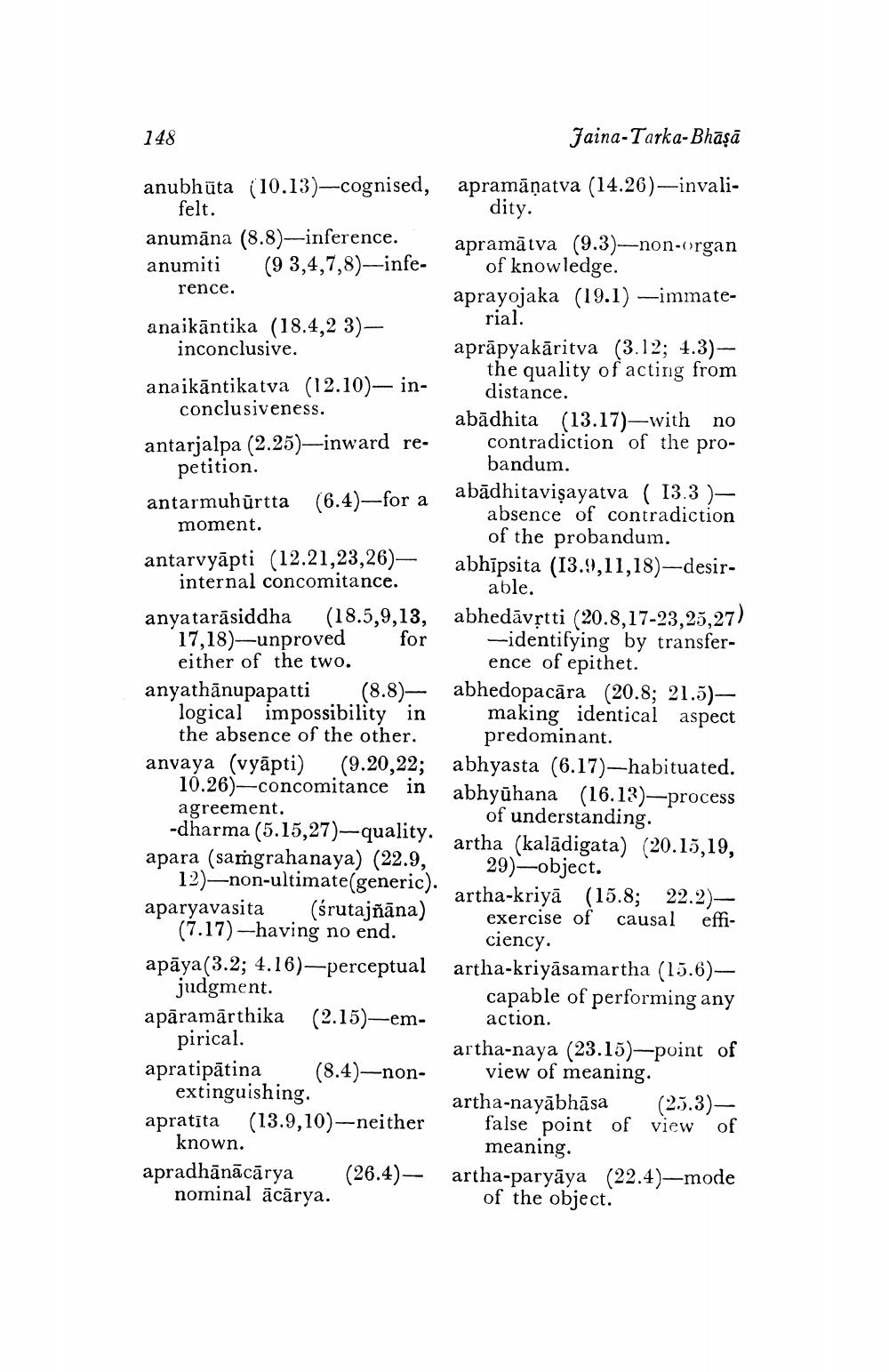________________
148
Jaina-Tarka-Bhāṣā
rial.
anubhūta (10.13)-cognised, apramāṇatva (14.26)-invalifelt.
dity. anumāna (8.8)-inference.
apramātva (9.3-non-organ anumiti (93,4,7,8)—infe- of knowledge. rence.
aprayojaka (19.1) -immateanaikāntika (18.4,23)inconclusive.
aprāpyakāritya (3.12; 4.3)
the quality of acting from anaikāntikatva (12.10)— in
distance. conclusiveness.
abādhita (13.17)—with no antarjalpa (2.25)-inward re- contradiction of the propetition.
bandum. antarmuhūrtta (6.4)—for a abādhitavişayatva ( 13.3 )
absence of contradiction moment.
of the probandum. antarvyāpti (12.21,23,26)- abhīpsita (13.9,11,18)-desirinternal concomitance.
able. anyatarāsiddha (18.5,9,13, abhedāvịtti (20.8,17-23,25,27)
17,18)—unproved for identifying by transfereither of the two.
ence of epithet. anyathānupapatti (8.8) abhedopacāra (20.8; 21.5) -
logical impossibility in making identical aspect
the absence of the other. predominant. anvaya (vyāpti) (9.20,22; abhyasta (6.17)--habituated.
10.26)—concomitance in abhyūhana (16.13)-process agreement.
of understanding. -dharma (5.15,27)-quality. artha (kalādigata) (20.15,19, apara (samgrahanaya) (22.9, 29) -object. 12)—non-ultimate(generic).
artha-kriyā (15.8; aparyavasita
22.2) (śrutajñāna) exercise of causal effi(7.17)-having no end.
ciency. apāya(3.2; 4.16)-perceptual artha-kriyāsamartha (15.6) - judgment.
capable of performing any apāramārthika (2.15)-em- action. pirical.
artha-naya (23.15-point of apratipātina (8.4)-non- view of meaning. extinguishing.
artha-nayābhāsa (25.3) - apratīta (13.9,10)-neither false point of view of known.
meaning. apradhānācārya (26.4)-- artha-paryāya (22.4)-mode nominal ācārya.
of the object.




